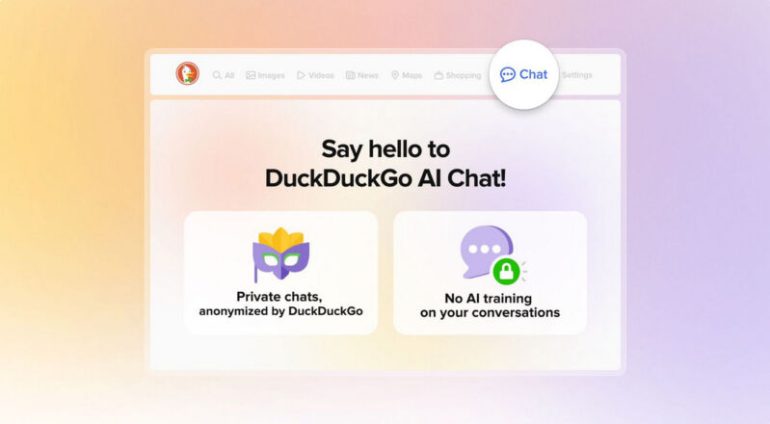- DuckDuckGo introduces “AI Chat” service, offering access to mid-range large language models (LLMs).
- Users can engage with LLMs from OpenAI, Anthropic, Meta, and Mistral through an interface similar to ChatGPT.
- Privacy and anonymity are prioritized, with metadata and IP addresses removed from chats.
- Chats are not used for AI model training, and agreements ensure the deletion of saved chats within 30 days.
- While the service is free with daily limits, concerns remain regarding the accuracy of AI-generated responses.
- DuckDuckGo may consider introducing paid plans in the future to access more advanced models.
Main AI News:
In a move to prioritize user privacy and anonymity, DuckDuckGo recently launched its “AI Chat” service. This service provides access to four mid-range large language models (LLMs) from prominent providers such as OpenAI, Anthropic, Meta, and Mistral. Designed with simplicity in mind, the interface resembles that of ChatGPT, offering users a seamless chatting experience without compromising their privacy.
Despite the potential for inaccuracies inherent in AI-generated responses, DuckDuckGo’s platform allows users to interact with various mid-range LLMs effortlessly, without any installations or account creations. Currently, DuckDuckGo’s AI Chat offers access to OpenAI’s GPT-3.5 Turbo, Anthropic’s Claude 3 Haiku, and two open-source models—Meta’s Llama 3 and Mistral’s Mixtral 8x7B. The service is available free of charge, albeit with daily usage limits.
Accessing AI Chat is convenient through DuckDuckGo’s search engine, direct links, or designated shortcuts like “!ai” or “!chat.” For users seeking even more control, the option to disable AI Chat is available in the site’s settings, particularly for those with accounts.
DuckDuckGo emphasizes the anonymization of chats, stripping metadata and IP addresses to prevent any potential tracing back to individuals. Additionally, the company assures users that chats are not utilized for AI model training, aligning with its stringent privacy policy and terms of use. According to DuckDuckGo, agreements with model providers ensure the complete deletion of saved chats within 30 days, underscoring their commitment to user privacy.
However, despite these measures, privacy isn’t foolproof. For instance, in the case of GPT-3.5 and Claude Haiku, DuckDuckGo must transmit user inputs to remote servers for processing, potentially exposing users to identification under extreme circumstances. While the service functions smoothly, questions linger regarding its practicality. Although GPT-3.5 initially impressed users upon its debut in 2022, instances of confabulation persist—a challenge addressed more effectively by subsequent models like GPT-4. Yet, DuckDuckGo’s AI Chat currently lacks access to these advanced models due to their higher operational costs.
Furthermore, while the alternative models exhibit superior performance in certain aspects compared to GPT-3.5, they’re not devoid of inaccuracies. DuckDuckGo’s AI Chat, while offering a novel chatting experience with privacy assurances, raises concerns about the reliability of AI-generated responses. As stated in DuckDuckGo’s privacy policy, AI Chat outputs may lack comprehensive information and accuracy, cautioning users against relying solely on them, especially for critical matters like medical or legal advice.
Conclusion:
DuckDuckGo’s AI Chat service represents a significant advancement in providing privacy-focused access to conversational AI. However, while it offers convenience and privacy assurances, questions about the reliability of AI-generated responses persist. This development underscores the growing demand for AI-powered solutions that prioritize user privacy, signaling a potential shift in the market towards more privacy-centric AI services. Businesses should consider integrating similar privacy-focused features into their AI offerings to meet evolving consumer preferences.

